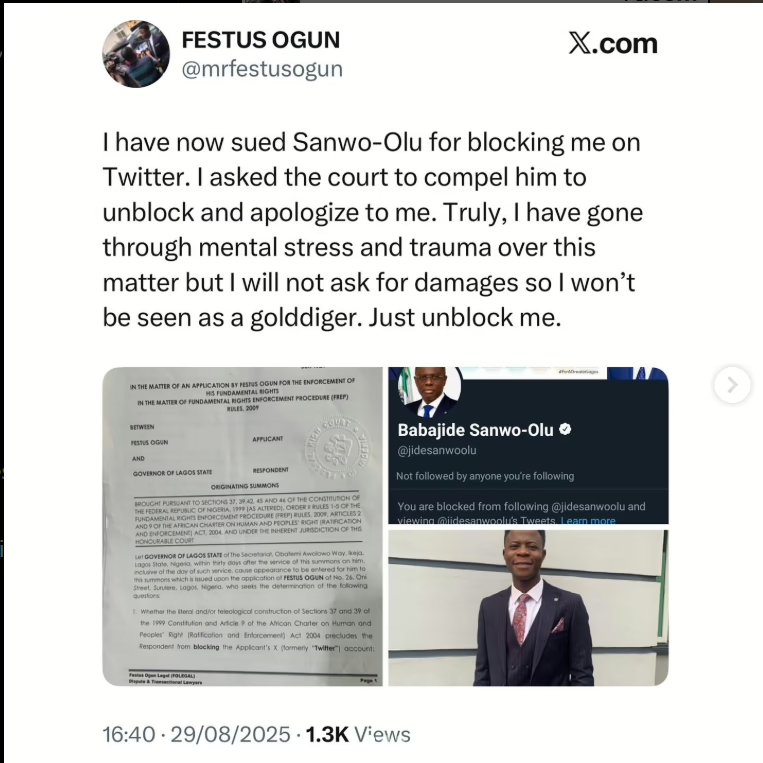Legal Challenge Against Lagos Governor Over Social Media Block
Prominent human rights advocate Festus Ogun has initiated legal proceedings against Lagos State Governor Babajide Sanwo-Olu, accusing him of infringing on his constitutional rights by blocking him on the social media platform X (previously known as Twitter).
Background of the Dispute
Ogun revealed that the governor restricted his access in 2021 following his outspoken criticism and calls for transparency regarding the tragic events of the October 2020 #EndSARS protests, where numerous civilians lost their lives during police crackdowns.
Impact of the Social Media Block
The lawyer emphasized that being blocked has effectively cut him off from receiving official updates and essential information about governance and public affairs in Lagos State, thereby limiting his ability to engage as a concerned citizen.
Details of the Court Case
Filed at the Federal High Court in Lagos, the lawsuit demands a judicial declaration that the governor’s action is unconstitutional, arbitrary, and discriminatory. Ogun is also seeking an order compelling Sanwo-Olu to restore his access, issue a formal public apology, and desist from silencing critics on digital platforms.
Legal Precedents and Broader Implications
Ogun cited a landmark 2019 U.S. court decision where former President Donald Trump was ruled to have violated citizens’ First Amendment rights by blocking users on Twitter, drawing parallels to his own case.
“Suppressing dissent and evading accountability contradicts democratic principles and constitutional guarantees. Across Nigeria, authorities increasingly target journalists, activists, and outspoken citizens on social media through arrests, surveillance, and digital censorship. This oppressive trend must end.”
Contextualizing the Issue in Nigeria’s Digital Landscape
In recent years, Nigeria has witnessed a surge in governmental attempts to control online discourse, especially following the widespread #EndSARS protests that mobilized millions. According to a 2023 report by the Digital Rights Foundation, over 30 cases of social media censorship and digital rights violations were documented nationwide, highlighting the urgent need for legal safeguards.


















0 Comments